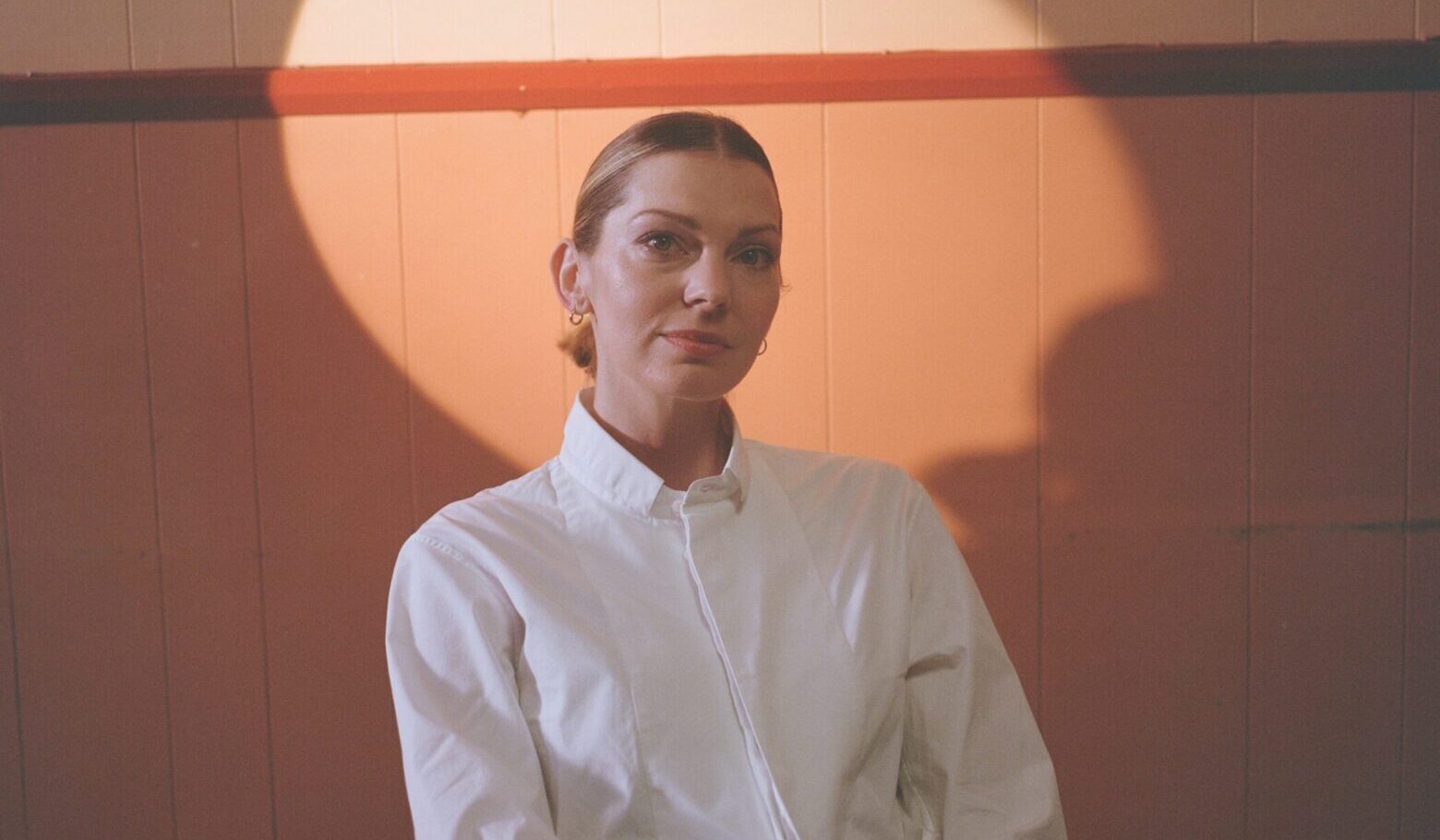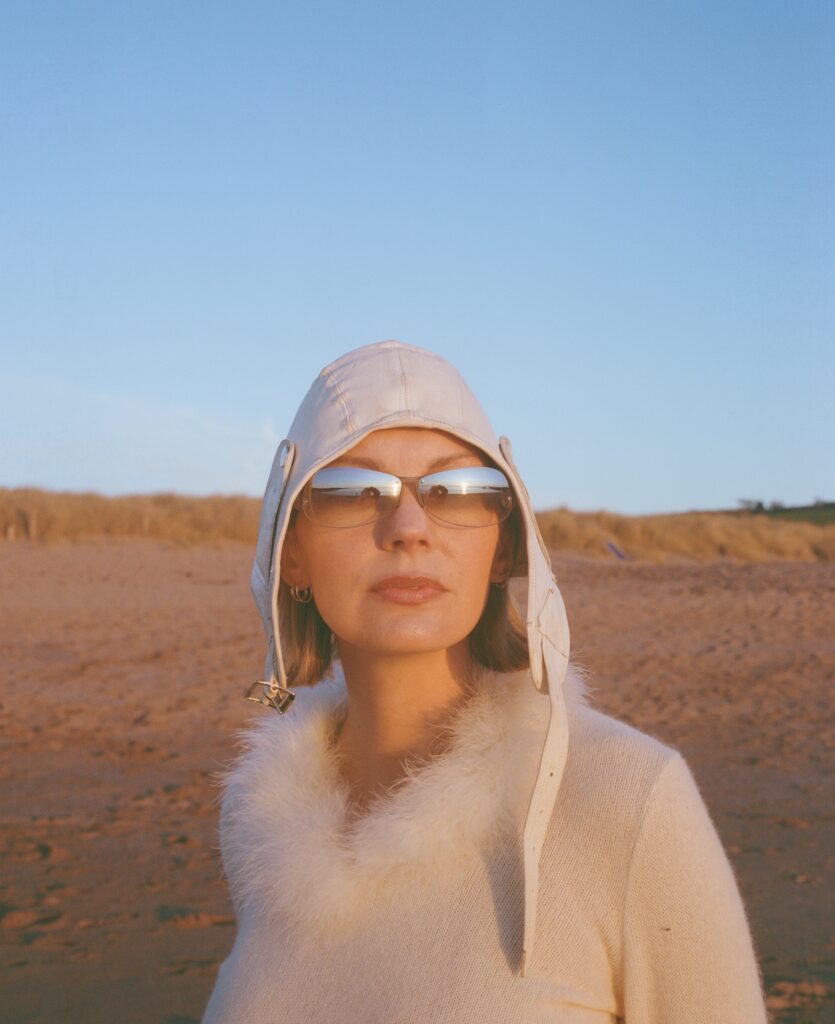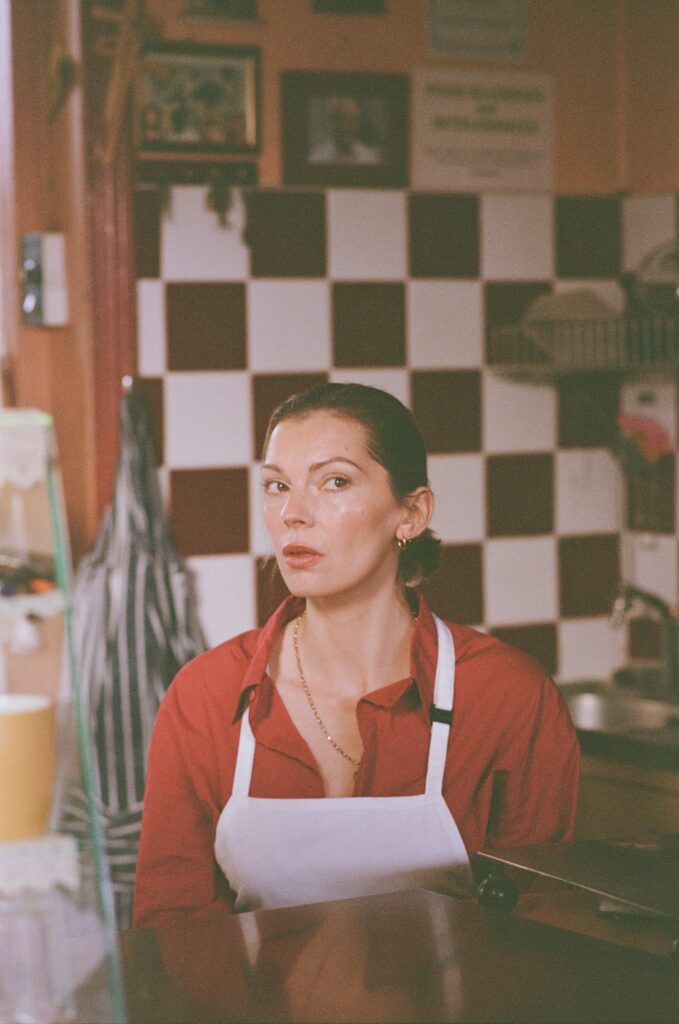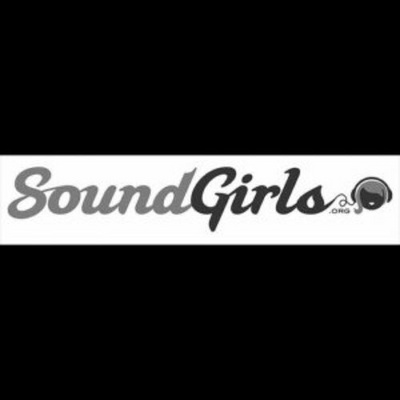Rosie Lowe: Producer, Songwriter, Recording Artist

Though British singer-songwriter Rosie Lowe has sustained a career as an artist for over a decade and has been recording her own music since her college days, it is with her August 2024 release Lover, Other that she took the lead on production, songwriting, and tracking. The result is a musical tapestry that crosses genres, spanning influences from R&B and electronic music to choral compositions. Her collaborators have included Little Simz, Jay Electronica, and Duval Timothy, with whom she released an album called Son in 2021.
People know you professionally as a recording artist and performer, but you have an audio background as well. Tell us about that.
I’ve always recorded my own music. When I was in Goldsmith’s University in London, we were doing a songwriting course, but you had to choose your limitations. My limitation was that I was only going to record using my voice. I was like, “I don’t want to be relying on anyone else to do this for me,” so I bought a computer and I learned Logic, got all of that equipment and spent some time with it, and it was the best thing that I did. Now I pick people that I want to collaborate [with] because I love their sound, but I think that early on, it was really important for me to do that stuff myself, not rely on someone else to make me sound how they thought I should sound. I’ve been recording and producing myself ever since, but I’ve collaborated quite a lot with producers over the years, and for this latest album, I really made a decision to steer the boat a bit more. I still collaborated, but I hand-picked where and how.

It’s interesting how you mentioned the first project that you gravitated toward being so voice-centered, because I noticed that the songs that you really took the helm on on your most recent album Lover, Other are vocal arrangements that are extremely layered and almost choir-like.
I love choral work. I love vocals as well. It’s where I feel most comfortable in a way, but also what I want to hear a lot of the time. Recording vocals is such a specific skill set, very different from producing. I actually made the decision on this album that I didn’t want to record in any soundproof rooms. I was wanting to record in open rooms and let that outside in. Some of my favorite records were recorded in that way, where you can hear stuff on the vocals, you can hear people talking, you can hear the sound of a car going by or whatever. And it’s all recorded in one take in a room. I love that. I love when recordings have life on them.
Where did you record?
At the beginning of this process, I just wanted to travel as much as possible. My main intention was to have as much fun as possible, because you never know if it’s going to be the last album you get to make. I was on the way to possibly having a child; you just never know. I reduced my studio to, like, a suitcase, and I just picked a few items. I first got on a plane to Catalonia in Spain, to a residential, and began writing there, and returned there about six times. It was just like heaven on earth. When I was there, I was in an annex that was attached to this big Spanish farmhouse. I traveled to from there to Florence, South France, Berlin, Sri Lanka, Devon, London. In Florence, there was this beautiful chapel. I sung some vocals in there that I then sampled. I recorded some of the vocals for “Sundown” in our empty flat, because we had to strip it out to renovate it. I [wanted] to record the vocals there, because there’s so much history and meaning for the song in that flat. It was the last time that I was there with my friend Steven, who the song was about.
It sounds like, from the church to the empty flat, you were going for a lot of natural reverb in your surroundings.
Yeah, absolutely. I really wanted just to create as natural sounding things as possible, and keep things quite raw. So if there was, like, a dog barking on the vocal, I wasn’t going to redo it. And it was the same with actually recording the vocals. I was only letting myself do full takes, and then trying to stay pretty true to the takes. I was trying to get myself away from the computer as much as possible, because I find that I’m a perfectionist. Really, I don’t think my best work is when I’m in that perfectionist head space, because actually, as a listener, I’m not interested in hearing like a perfect vocal. I’m interested in hearing a vocal that is free and means something.

Can you describe your studio in a bag?
It changed a little bit as I went, but it was a (Boss) SP 303. I ran a lot of the sounds from the album through the compressor on that, and I used it as a little affecting unit, as well as a little sampler. My Zoom recorder: I took that with me in my handbag, basically for the whole year and I would just record anywhere I was–little birds or my vocals somewhere, or a conversation or something, and I would layer that under things as well. I bought an (Isla Instruments) SP-2400 through the process. You can get samples on there really quick. You can also record really quickly, so it was really useful throwing stuff out and being like, “oh, dinner’s in 20 minutes. I’m just going to make something.” It was a bit more intuitive. I had my UA interface, a few mics. I had a Marantz tape recorder that I was recording a lot of the vocals onto, and a little MIDI keyboard. There was a Reslo microphone. I had a few ribbon microphones. I wish I could sing on ribbons on stage, but it’s just not possible.
Does anyone stand out as sort of a mentor, someone that you’ve learned a lot of your skills from, who elevated your approach to mixing and producing?
Dave Okumu, who was a long-term producer and collaborator and friend of mine, was definitely like a mentor, not necessarily technically as much as life-wise. They are just a very wise soul, and always encouraged me to kind of block out the noise, not listen to what people think I should be, or what other people’s opinions are of me, and just carry on, stay focused on my own path. So that’s been pretty amazing. He would always say, “is it something that you’re going to be proud of doing 10 years down the line? If it’s not, then you probably shouldn’t do it,” and I think that was really good advice. But on this album, there was one person in particular that was incredibly influential: Harvey Grant. He’s one of the best pianists I’ve ever come across. He’s an organist and just an absolute wizard on piano and harmony. He did all the string arrangements on the album, that I’d then respond to with vocal arrangements, and then we’d do it as, like a call and response. A lot of the time, in the studio, you tend to lean on the person who can do things quickest and with ease. A lot of moments where he could probably do something quicker than me, he was like, “no, no, you do that.” I think that he was really integral at being a bit of a cheerleader and pushing me to actually see things through myself sometimes, where a lot of other people I have worked with in the past would have just sat down at the computer and done it.
What advice do you have for other performers who want to extend their skill set behind the board, so to speak?
Just doing it is the best advice. Leaning into things that aren’t necessarily your skill set can bring about the most exciting sounds. Generally, in life, it’s a really good thing to do things you’re not good at. You can be really surprised by what that brings up in a positive way. A lot of the time with music production, there’s this sense that there’s a right way to do it and a wrong way to do it, but I really don’t believe in that. I don’t think it really matters how you get to the end point, as long as it represents what you imagined it to be.
Do you have any advice for women and girls in particular?
My experience is, if there are men around that can do it, they probably will. [Try] to get it done yourself behind closed doors, chiseling away and not being scared to push through what it is that you want. There’s a lot of egos in this industry, and sometimes, if you don’t have much of an ego, then you just have to kind of pretend that you do. I don’t go into studio being like, “No, I’m doing that.” But I can be like, “I don’t think that’s quite what I imagined.” There’s a lot of incredible, amazing, supportive men, and I think it’s just about finding your crew and sticking with them, but also working with other women. I love writing with other women so much. You can just open up and write a song with so much joy and ease in my experience.
More on Rosie Lowe:
https://rosielowe.bandcamp.com/
Selected Interviews with Rosie Lowe:
August 2024: Composer Magazine
Article by: Meredith Hobbs Coons
Editor's Note: At StageLync, an international platform for the performing arts, we celebrate the diversity of our writers' backgrounds. We recognize and support their choice to use either American or British English in their articles, respecting their individual preferences and origins. This policy allows us to embrace a wide range of linguistic expressions, enriching our content and reflecting the global nature of our community.
🎧 Join us on the StageLync Podcast for inspiring stories from the world of performing arts! Tune in to hear from the creative minds who bring magic to life, both onstage and behind the scenes. 🎙️ 👉 Listen now!
